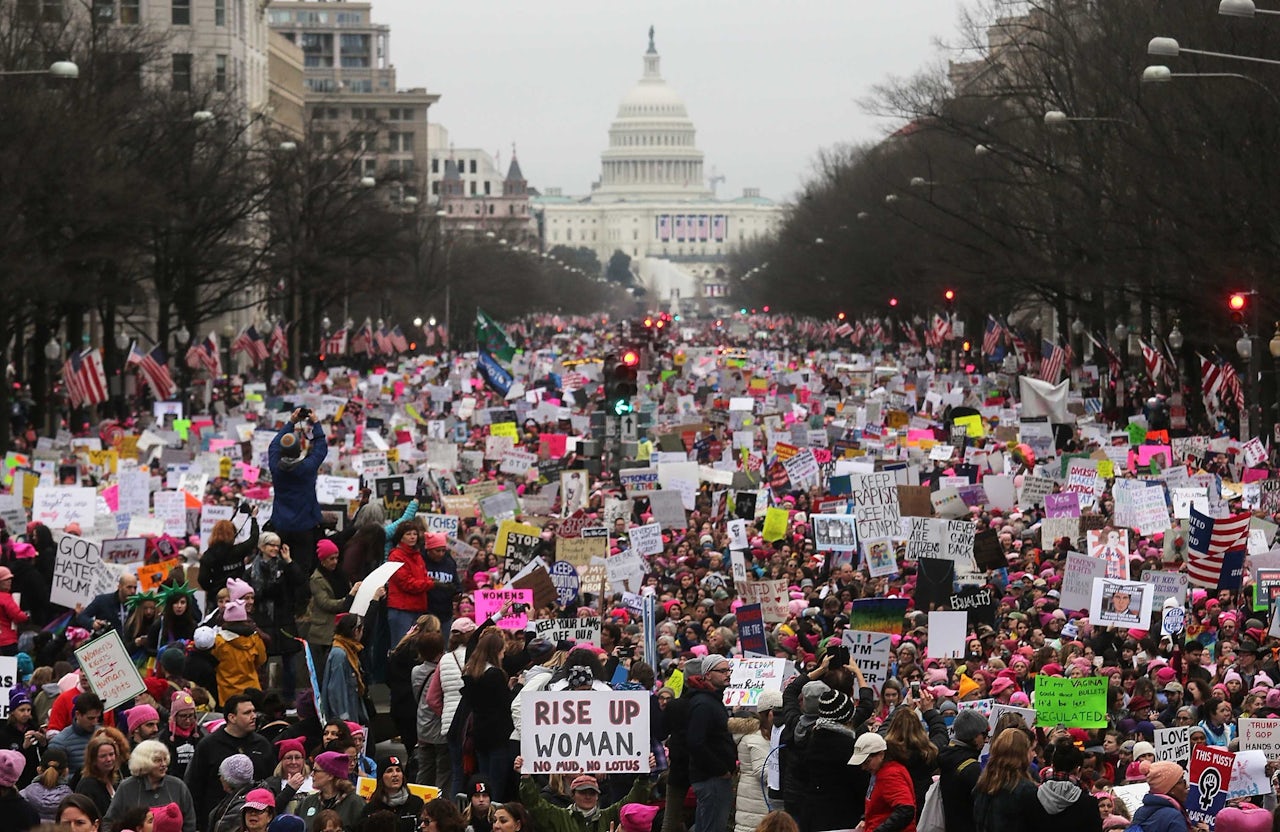I don’t need to tell you that this was an extraordinarily bad year, in a terrible decade, in what so far has been a shit century. You already know. The planet is deteriorating. Inequality is staggering. Nazis are everywhere. Donald Trump is the president.
A recent piece on the website Splinter predicted that, as bad as this year was, 2018 will be way worse. “I’m not just saying that some very bad things will happen, as they always do,” Hamilton Nolan wrote. “I’m saying that it’s going to be actually and measurably bad and our economy is gonna get fucked up again because some crazy shit is gonna happen that freaks everybody out. This will be the year when we don’t just bounce back.”
Rationally, there’s no real reason to disagree with this sentiment. But there are reasons to have at least a little bit of hope that there is a backlash coming in response to all the ridiculousness we’ve been through: not towards just Trump and Trumpism, but also the oppressive systems that helped put him in office in the first place.
The first thing to be hopeful about is the rise of a leftist opposition in the United States. We have never really had one before, and now we do, and excitement about socialist politics is at a level not seen since the time of union leader Eugene Debs in the late 1800s. Membership in the Democratic Socialists of America grew from around 6,500 in May 2016 to more than 30,000. Despite not being a registered political party in any state, a slew of DSA members were elected to local positions around the country this year. Wins in local races for leftists happened all over the country, in red states like Mississippi as well blue states like Massachusetts.
There is so much enthusiasm for socialist politics.
This is how building a real opposition starts: not at the top with a presidential candidate like Bernie Sanders (although he certainly did help get the message out), but by building a base at the local level and normalizing socialism in people’s conception of government.
The second reason to be hopeful: More women are running for office than ever before. EMILY’s List, a PAC supporting pro-choice Democratic women, told The New York Times earlier this month that around 22,000 women contacted them about running for office this year, compared to 1,000 in the run-up to the 2016 election. In the Virginia House of Delegates races in November, Democrats picked up at least 14 seats; 11 of those victories were by women.
More women are running for office than ever before.
This isn’t to say that women haven’t always engaged with politics, but historically, women have shied away from running for office for reasons that political scientists have tried to explain in the past, including biases against female candidates and a lack of confidence that they can actually do the job, which is something usually afforded to male candidates. It appears that the last year has changed that. It’s not out of the question that this isn’t just a reaction to Trump’s terrible policies for working-class women, but rather the fact that someone who’s been accused by more than a dozen women of sexual harassment occupies the Oval Office.
Finally, and maybe most importantly — this year was one of protest and political action that did not prioritize politicians or elections at all. The day after Trump’s inauguration, 500,000 people flooded Washington, D.C. for the Women’s March, and it was estimated that more than four million people across the country demonstrated in their own marches. A week later, cab drivers in New York City called a massive strike, refusing to pick up passengers at JFK in a one-hour work stoppage to protest Trump’s dramatic refugee ban. When Uber lowered prices in order to take over the market, the ride-sharing app lost thousands of customers, who deleted the app in disgust. When Trump announced in September that he would rescind the Deferred Action For Childhood Arrivals program for undocumented people brought to the U.S. as children, protests and rallies erupted across the country. We saw Confederate statues toppled in the South. NFL players, taking a cue from Colin Kaepernick’s protests in 2016, brought the reality of police brutality to a national audience.
This year was one of protest and political action.
When the unified Republican government went about the undertaking of dismantling Obamacare — the party’s biggest priority since 2011 — people from around the country flooded their representatives’ town halls and phone lines to demand they stand down. Protesters from organizations like the disability rights group ADAPT staged sit-ins and sacrificed themselves to arrest to show the country how dangerous the bill was for marginalized people. The result of the pressure put on the few ostensibly “moderate” Republicans in the Senate was that Obamacare repeal was killed multiple times.
This doesn’t mean that the Republicans are finished; for one, they’re barreling towards a tax vote that will both greatly accelerate inequality and, as The International Business Times reported this week, make the Republicans who are going to vote for it much richer. But we’re reaching a point where Congressional Republicans are becoming scared to face their constitutents; perhaps a recognition that things are fucked up beyond belief is the first step towards acknowledgement that they need to change.
My hope is that all of these factors eventually result in working class people joining together in solidarity to make a more fair society. Historically, we haven’t had a great track record on this. But making a better world is a process. It starts in your personal relationships, your workplaces, your communities, your school boards, your town councils, your state legislatures, and so on and so forth. As bad as this incredibly shitty year was, I hope that it spurred a collective realization that we can’t rely on politicians to save us. All we have is ourselves, and each other.
